ML-In 1986 Autorema was born in Molina de Segura, at a time when the sector was in excellent health. With more than 30 years of experience, you are still a reference in the sector. How do you remember those beginnings?
At that time I was not even born, so it will be difficult to answer this question, but I have had the opportunity to hear from my father and his partners, how they lived it. According to what they say, it was a time when there was a lot of work at a local level (a large part of the canned food consumed in Europe at that time was exported from Murcia), but there was also a lot of competition. This climate allowed us to develop many solutions for the metal packaging sector, and to grow quite fast, but at the same time, it forced us to be very demanding with our work, so as not to disappoint our customers. This commitment to quality, so deeply rooted in our DNA, has been maintained to this day.
ML-How has this evolution been along these years, how has Autorema, as a company, changed until nowadays?
We have always tried to have a vision focused on the outside of the company, without losing sight of what was happening inside, and that has allowed us to be updated to the society that surrounded us at all times. In the 90’s we realised that the market was global and with the help of the internet, a suitcase and a mobile phone we set off to travel the world.
Little by little, the team grew and we decided to give engineering a boost. Today we have more than 10 engineers and a constant investment in R+D+i. Later, it was the arrival of industrial robotics and then we decided to create an automation department and form a team of programmers and specialists that already has more than 10 people.
Currently, we are focused on relying on Industry 4.0 and all the tools it can provide us with, to try to help our customers, through collaborative robotics, the internet of things, the digital twin, etc.
ML-Our company is dedicated to the automation of high production processes, the development of integral projects ‘turnkey’ all over the world. Are automation and new technologies your key element?
Absolutely. In an increasingly competitive world, I believe that automation plays a very important role in optimizing our customers’ processes. In addition, I believe that automation brings many benefits that most of the time go unnoticed, such as standardizing quality, improving troubleshooting, reducing human error, etc. Always, without losing sight of the human component of the companies. We believe in automation, but we are even more convinced that companies advance thanks to people. Our bet is to allow these people to develop tasks that are really valuable for the corporation.
ML-Autorema’s engineered solutions are mainly active in the metal packaging and canning industries. What other areas of expertise do you offer?
As I said before, nowadays we have a very big team (we are already more than 70 people) and very prepared. This allows us, at times, to develop automation and robotics projects for other sectors such as the pharmaceutical, glass or cardboard sectors, for example. Although, today, more than 80% of our business is focused on metal packaging.
ML-Your company has made a name for itself by working with a network of can manufacturers that allow you to test new automation solutions with which to stand out on the international stage. In which countries?
Latin America is where we have the largest presence. We can say that we have projects in all the countries of the Southern Cone. That’s where we started to spread the word first, especially because we have the same language and a very similar culture. However, in the last 10 years, we have greatly boosted the European and African markets, and they have almost reached the South American market. Right now, we’re also trying to tap into the U.S. and Middle Eastern markets.
ML-Autorema is still a family business in which the generational handover is assured and confirms the strength and expansion of the company internationally. What is the secret of your success, how important is the customer in the production process?
Let’s say that the previous generations have been in charge of instilling the culture of effort and sacrifice. There is a mantra that is repeated a lot within the company, and it is that
“we are a service company”. The truth is that we do not distinguish between clients. We try to devote the same energy to everyone. That requires a capable infrastructure, but we think we’re getting there.
ML- Has Latin America been key to that growth?
Latin America has marked a before and after for us. That’s where we started exporting, and when you export you have to meet minimum quality standards. Our business idea is to establish a lasting relationship with the customer. We like to be a strategic supplier, on which customers rely and with which they consult any aspect related to the automation of their production process (even if, sometimes, everything remains in studies and approaches that do not bring us any sale). To achieve this in such a demanding market as the Latin American market forces us to maintain a very high quality standard.
ML-Will the integration of robots for different applications and quality control through the incorporation of advanced technologies, such as artificial vision, continue to be your bet for the future?
Of course. Robotics is experiencing a second youth. The democratization of robots is making it possible today to implement robotic solutions for small manufacturers that were previously unthinkable to imagine. Certainly, the biggest advantage that a robot offers is the robustness of the system. They are designed to work at very high levels of demand and offer great flexibility.
ML-Your company manufactures customized machines for the canning and canning sectors and exports 70% of its production to four continents. What are your expectations for growth in the short, medium and long term?
We want to continue to maintain our hallmark of offering customized solutions for each client, but through standardized processes. That is to say, to solve our clients’ problems with highly proven methods, but adapting ourselves to what they need at each moment.
In the short term, we want to continue to increase our turnover. This year we expect to grow almost 30% over the previous year. In the medium term, among our plans is to reinforce our physical presence in some strategic markets, such as Mexico, where we had the opportunity to see ourselves at the Latamcan exhibition last month. In the long term, it is always more difficult to make plans, in a society as changing as the one we live in now. For the time being, we are satisfied that our clients continue to trust us and see us as a strategic support for the growth of their business.
ML-You have recently been present at Latamcan 2021, what is your assessment of your attendance at this important international fair?
The balance is always positive. And even more so in these times in which we are living. It is always good to regain the human contact that we have been losing for several years, because of the pandemic that we have suffered and continue to suffer. I believe that now more than ever, events like Latamcan are necessary to strengthen those interpersonal relationships that I consider so important and that I think the pandemic has deteriorated. I do not deny that the pandemic has brought good and interesting things, such as teleworking or videoconferencing, but I believe that we cannot allow ourselves to dehumanize our relationships, because we would be endangering what constitutes us as a society.
ML-The recent rise in the price of raw materials, the increase in the cost of maritime transport and the energy crisis. Could it affect you in any way?
In fact, it has been affecting us for months now. We see it above all in the rising price of steel, as well as in the lack of electronic components. Fortunately or unfortunately, it is a global problem that is affecting us all. As far as we are concerned, we are trying to mitigate the damage with an appropriate procurement policy, just as we are trying not to pass these increases on to our customers. The rest is up to the governments, which I understand will be trying to find solutions.
ML – To conclude the interview, what is your assessment of the last year, is there optimism, what new market niches are opening up for you?
In general, both this year and last year have been years of great uncertainty. The border closures have made the situation very difficult for us at many times. Even so, at Autorema we have continued to grow at a good pace. The metal packaging industry has not been one of the sectors hardest hit by this crisis. So our aim is still to expand our market within the metal packaging sector and to strengthen certain branches such as the two-piece beverage packaging industry.
Personally, I am optimistic. I always try to see crises as an opportunity, and this time we have the chance to put people back in value and at the same time use the new technologies that are presented to us to create bonds and shorten distances. We have the opportunity to try to make our processes more efficient, to follow more responsible corporate policies, etc. In short, I believe that crises are always a warning to navigators, which we must know how to interpret in order to improve as individuals and as a corporation.

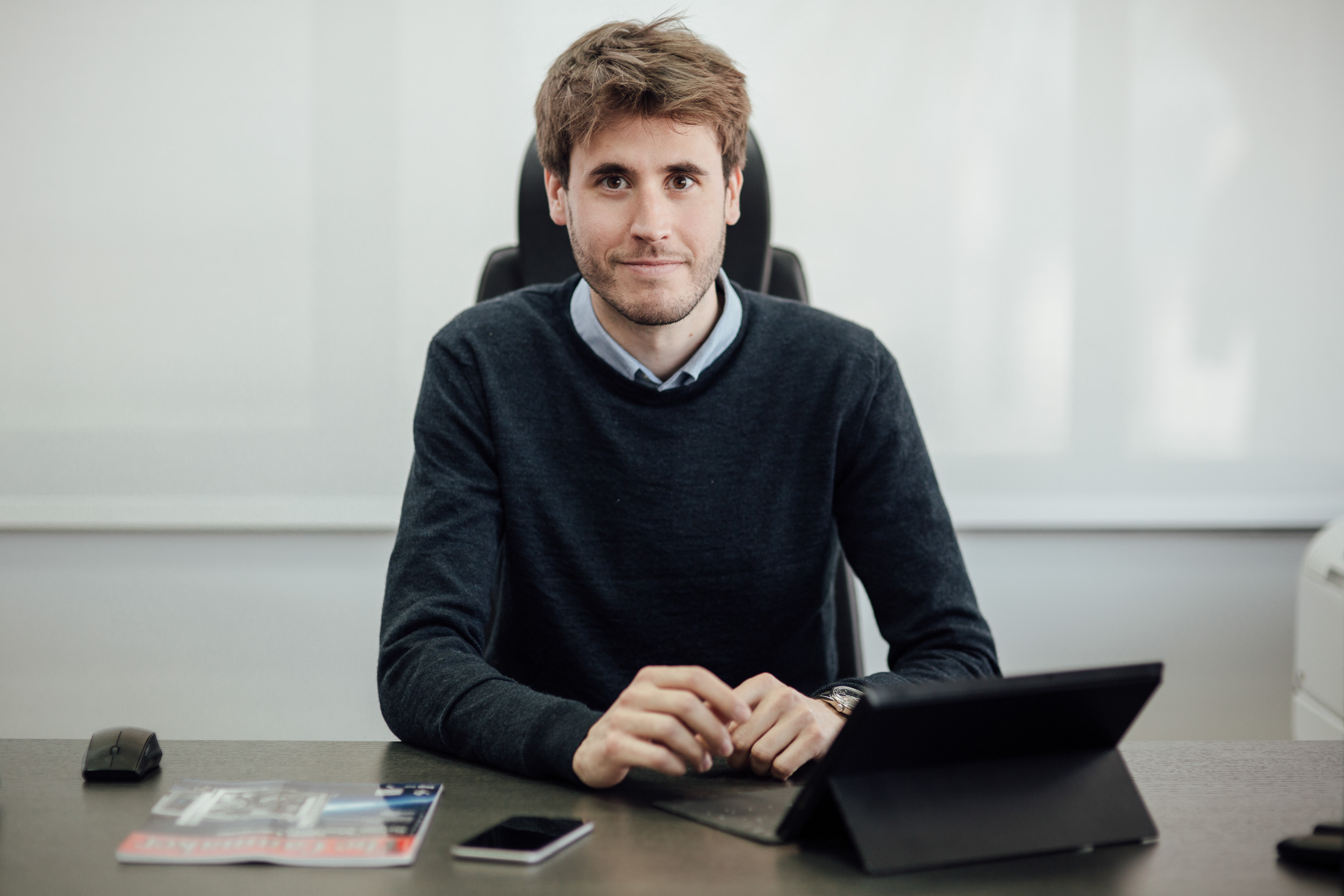

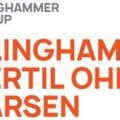
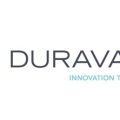
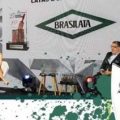
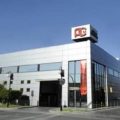


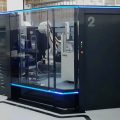




0 Comments